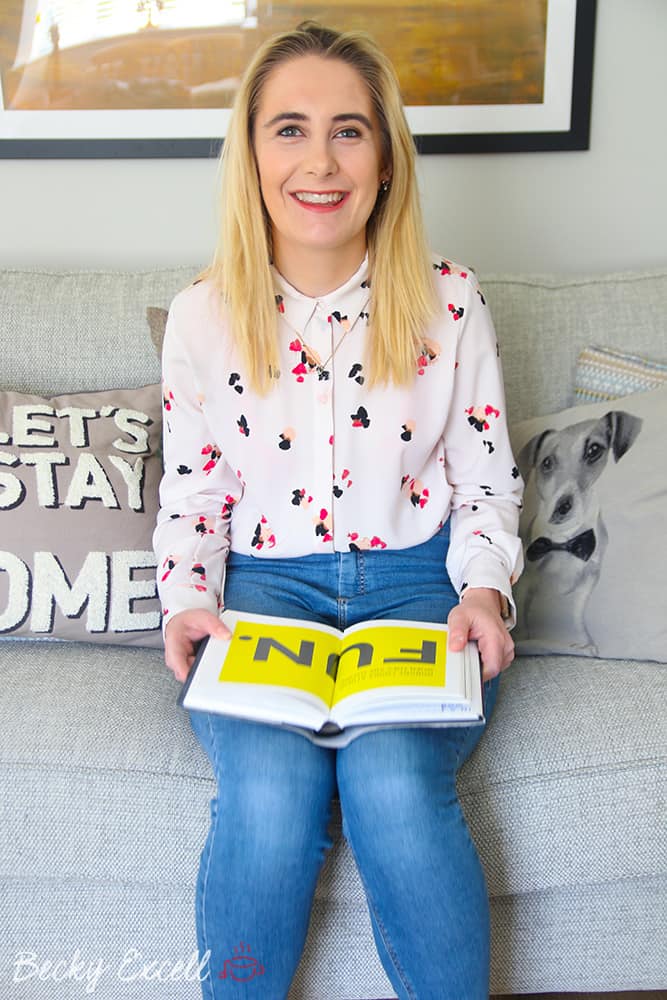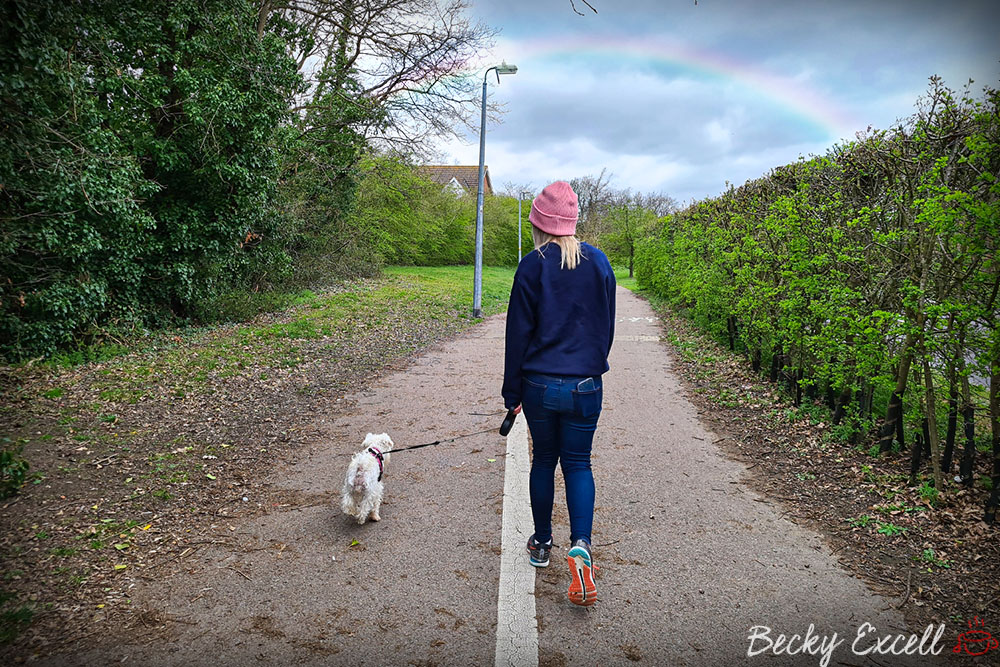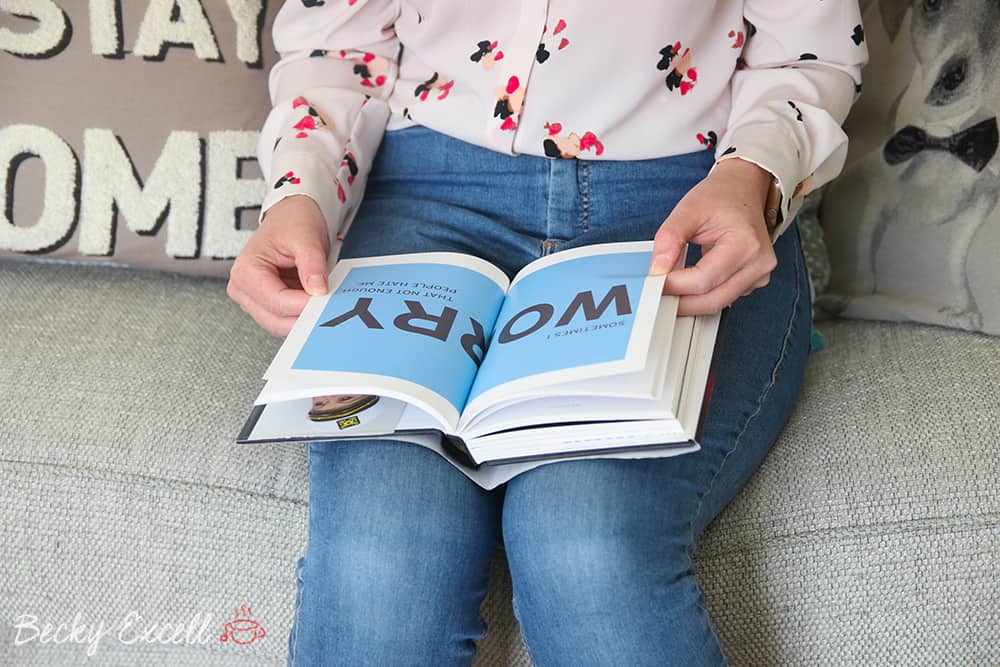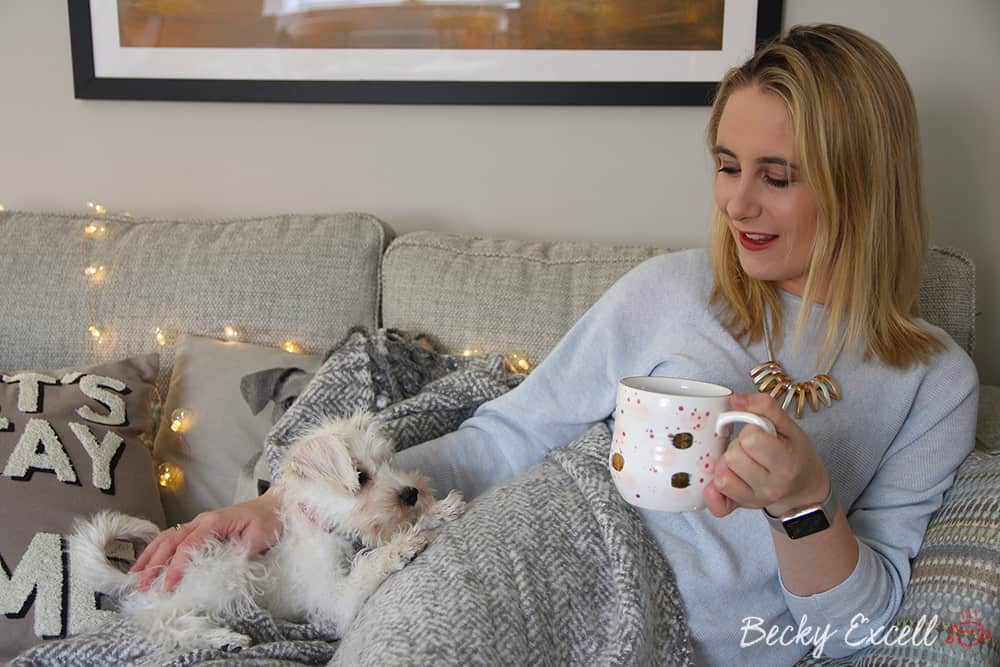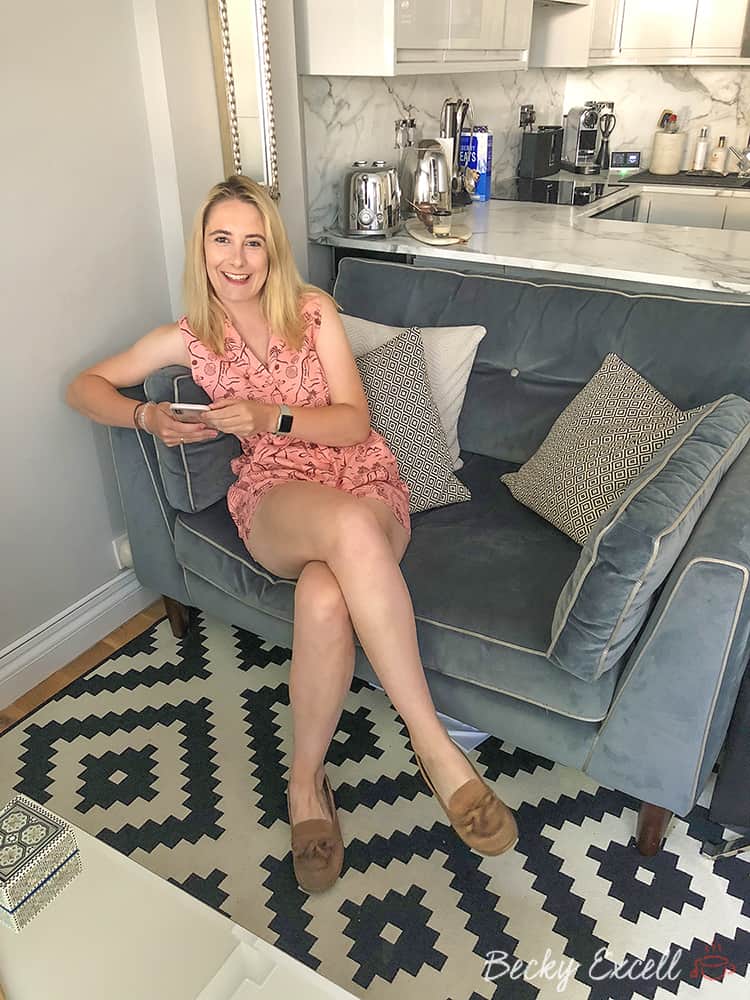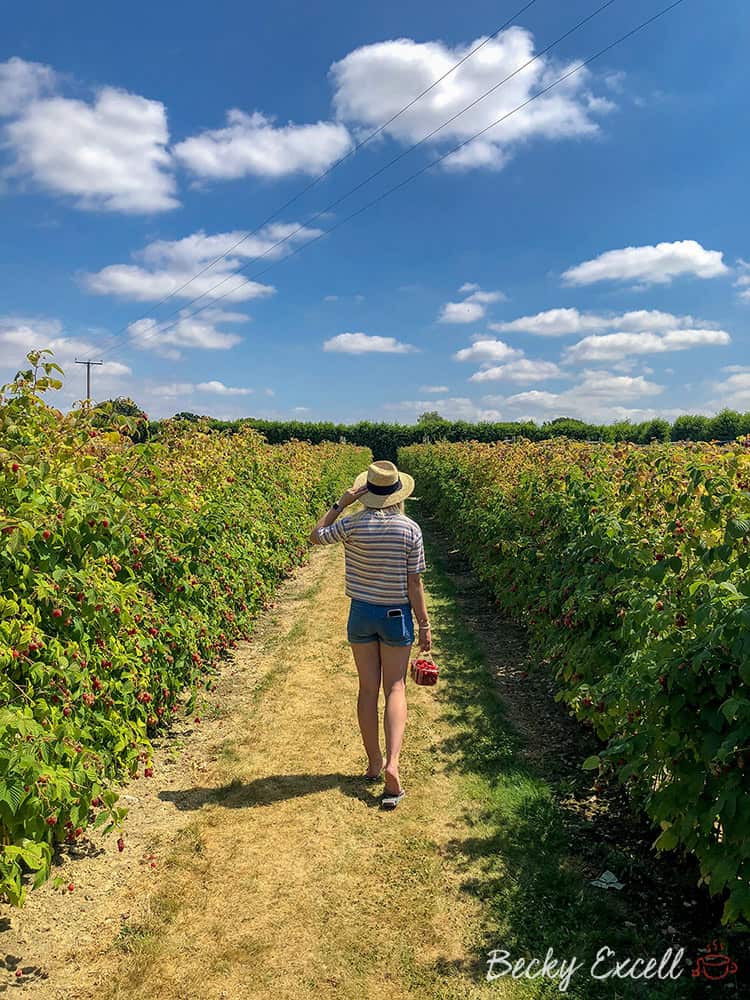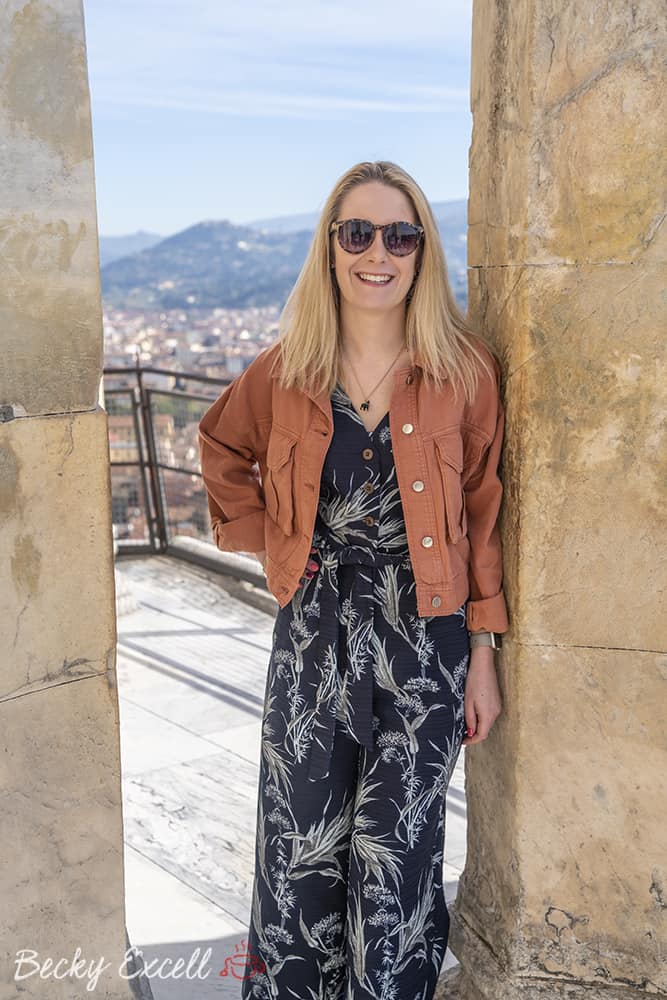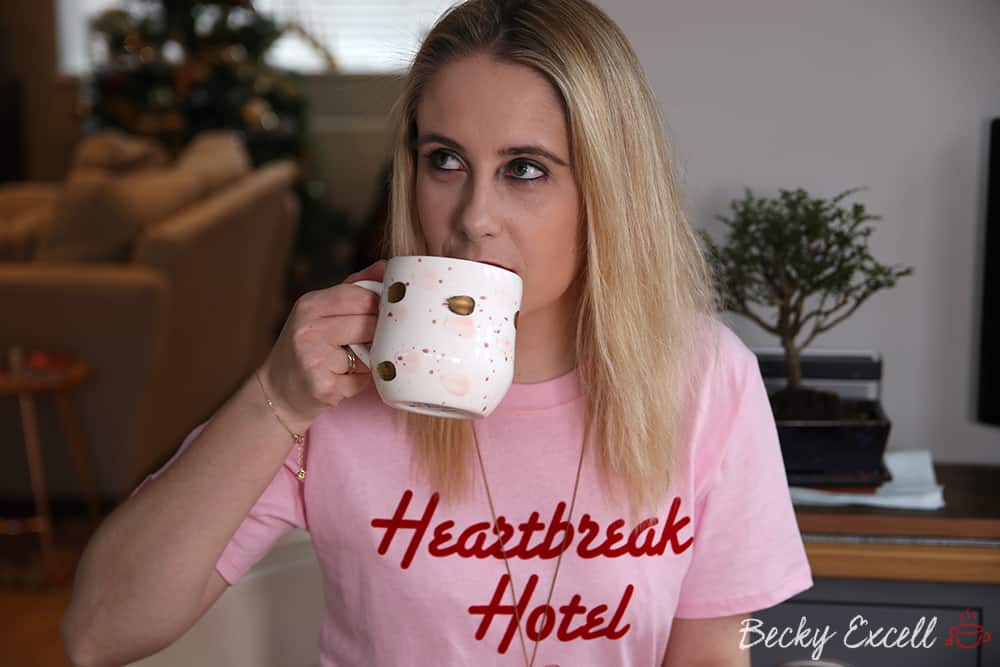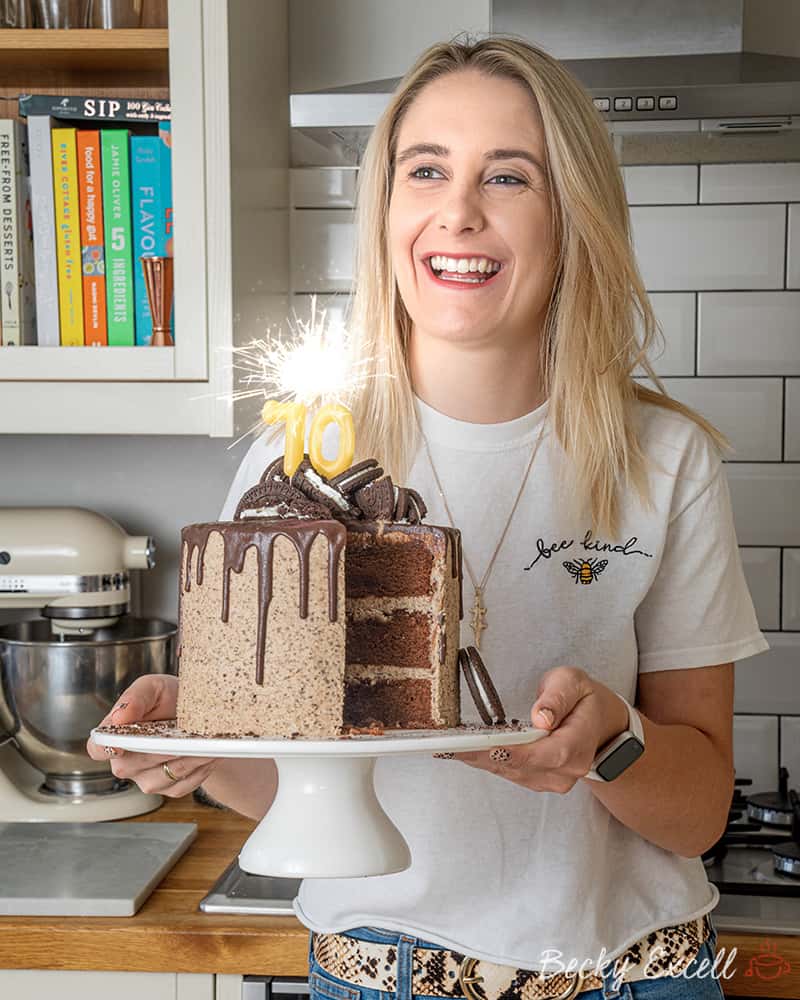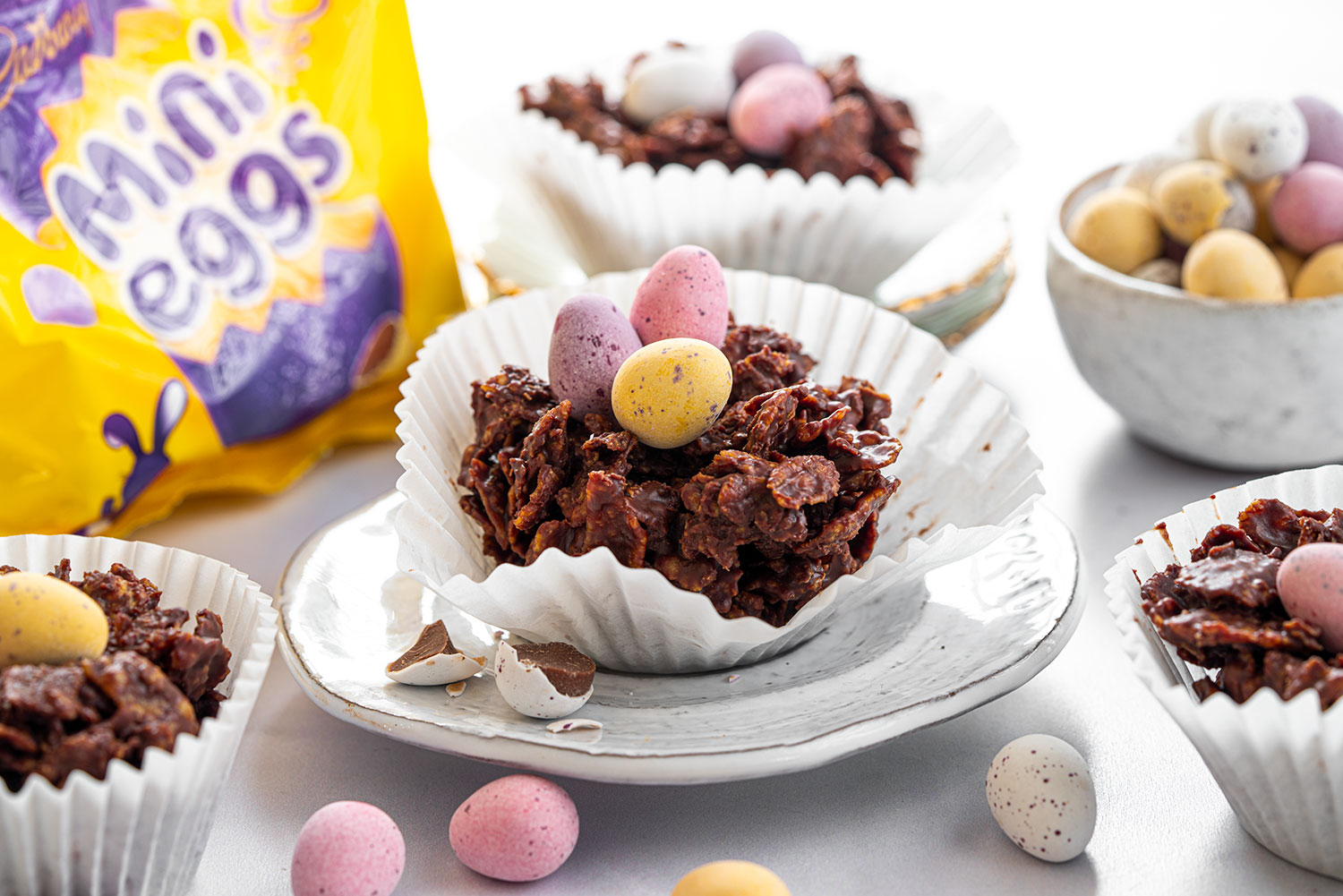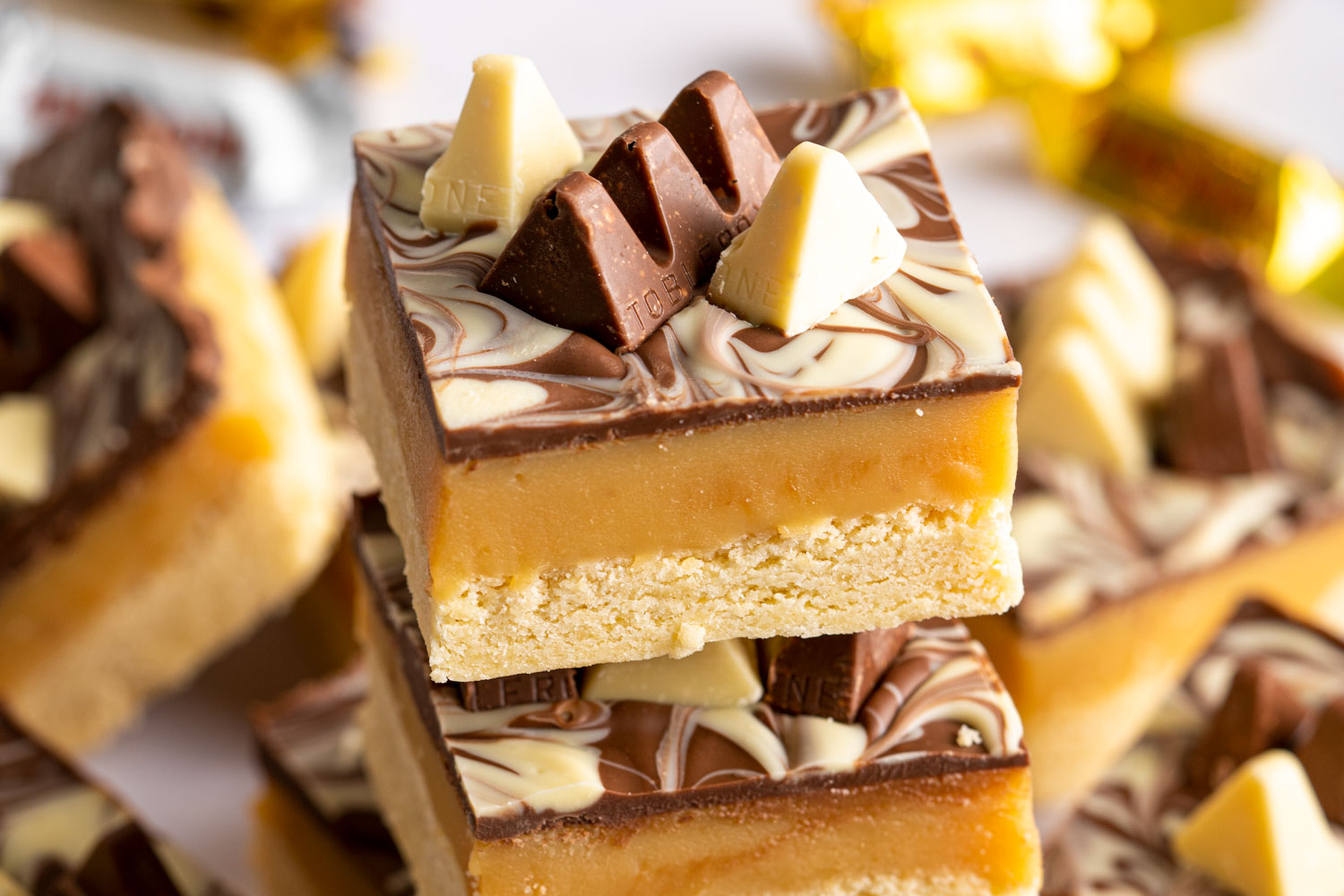The other day I finally opened the letter that I’d been dreading to open. And that one sheet of paper would change my life forever: I’d tested positive for the BRCA2 gene mutation. Out of all the things I could have had in common with Angelina Jolie, why did it have to be BRCA, the breast cancer gene?
One day, you’re baking a gluten-free cake and the very next moment, you’ve got to make lots of big, scary decisions about the rest of your life. But I guess… that is life, isn’t it? Just so you know, I will be talking about cancer and medical stuff in this post, so if it’s that’s not for you then please don’t feel bad about skipping this post.
Where do I start? Not surprisingly, I’m so much better at talking about food! Maybe I should start by quickly explaining why I’m even sharing this very personal news, publically, in the first place?
Obviously, I *wish* I was sharing a new gluten-free recipe with you guys here today instead of what I’m about to share. But deep down, I want to share my story every step of the way to help raise awareness of the BRCA gene mutation and the effect that it has on a person’s life – specifically mine. So that’s exactly why I created this post.
Like many of you, I’d never even heard of it when my Mum and Dad told me that I might have the BRCA2 gene mutation. I didn’t even know what to type into Google to find out more information!
And given the impact it can have on a person’s life (whether you’re male or female), knowing about it early could literally be life saving. So grab a cuppa, get comfy (because this a long post) and I’ll tell you all about my ‘Me vs BRCA2’ story so far…
Firstly, what on Earth even is a BRCA2 gene mutation?
Knowing that Angelina Jolie had walked a similar path was all I ever knew about it (she had BRCA1). But even then, I didn’t know the medical term for it, I had no idea how it occurred, what it was, or what happens next.
So it turns out that actually, everyone has the BRCA2 gene.
In fact, we all have tens of thousands of genes that make up our bodies and they are all inherited from our parents. We have two copies of each gene – one from our Mum and one from our Dad. All our genes aid our body in functioning properly and our BRCA2 genes are there to protect our bodies from cancer.
But if you have a BRCA2 gene mutation, that means your BRCA2 gene doesn’t function the way that it should and as a result, there is a greater risk of developing certain cancers in both men (male breast cancer and prostate cancer) and women (breast cancer and ovarian cancer). Yep, that’s unfortunately what I’ve tested positive for.
So how did I get that gene mutation? Well, it’s passed down from one or both of your parents who, knowingly or not, also have the BRCA2 gene mutation. It’s hereditary, so if one parent tests positive and the other isn’t known to have it, then there’s a 50/50 chance that their children will have it too.
You can read a little more about the differences between BRCA1 and BRCA2 here.
How I found out I had the BRCA2 gene mutation.
In case you didn’t know already, I’ve been sharing my journey with BRCA2 on my Instagram story (which is now highlighted on my profile) so if you’d like little video updates from me personally on the journey, you’ll find them over there. You can watch my story so far on there, if you like.
And when I first posted my BRCA2 story on Instagram, A LOT of you guys on Instagram asked me how I even knew that I might have BRCA2 – especially having never had breast cancer before myself.
Well, the simple answer is this: a few months ago my parents popped round and told me that my Dad had tested positive for the BRCA2 gene mutation and now I had to get tested too. Like me, he’d only found out about this very recently – just a few months before I did. He’s in his 60’s and had no idea he’d had it for his entire life.
But this then brings up the same question for him… why did he suddenly get tested aged 60 something out of the blue?
Well, if you trace things back to the point where the BRCA2 gene mutation first ever occured in my Dad’s side of the family, my cousin (my Dad’s Sister’s Daughter) was where it was first picked up.
My cousin battled with breast cancer twice in her mid 30’s – fortunately she’s recovered now and fingers tightly crossed it stays that way. The first time she was diagnosed with breast cancer, we had zero known family history of the BRCA2 gene mutation, so it wasn’t something she was ever tested for.
But when she had breast cancer the *second* time (with her young age being factored in) this prompted them to test her for the BRCA2 gene mutation, which of course, came back positive. Without a family history of BRCA2 you’re unlikely to ever be tested, but getting breast cancer twice at such a young age was a signal that prompted them to test her, just in case.
So why don’t they routinely test people for the BRCA2 gene mutation unless they have a family history of it? The breast cancer charity Breakthrough explains why here:
“Without looking at the genes of an affected relative first, testing a healthy individual would be like reading through an entire book looking for a spelling mistake without knowing where the mistake is, or if there is a mistake at all.”
So next, my cousin’s Mum (my Aunty) was tested for the gene mutation and unfortunately, she also tested positive too. Of course, as it’s hereditary, my Dad was next to be tested and he also tested positive.
To be eligible for the test, they all had to evidence that they had an immediate family member confirmed with BRCA2, which is why I had to wait for my Dad to be tested first. If his test came back negative, I wouldn’t have needed to be tested and that would have been the end of that story for me.
But as you know already, that unfortunately wasn’t the case. Myself and my brother had to be tested next, with a 50/50 chance each that we’d both also have the BRCA2 gene mutation. As you know, I’ve found out my result already, but my brother is still waiting for his (test results commonly take 4-8 weeks). Fingers crossed again he doesn’t also have the mutation… but I do wonder how with a 50/50 chance, we all seem to be getting it in my family?!
But how did it get into my family tree to begin with? I found out that the BRCA2 gene mutation is more common in those who are of Ashkenazi Jewish descent as well as Norwegian, Dutch, and Icelandic descent too. My Dad’s side of the family is from South Africa, which of course, has history with Dutch colonisation, which might go some way in explaining where it originated from, but not necessarily.
How did they test me for the BRCA2 gene mutation?
The test was actually very straightforward and done entirely through the NHS. It’s just a blood test like any other blood test at the hospital – it was quick, easy and painless.
However, I wasn’t able to just go straight for a blood test as soon as my Dad tested positive. I wanted to get tested ASAP (who wouldn’t?) but I wasn’t actually allowed to until I spoke to a genetic counsellor over the phone.
The genetic counsellor first had to go through the pros and cons of testing with me to make sure I had all the information I needed to make an informed choice. Basically the ‘cons’ boiled down to this: would you be happier living a life not knowing? At this point, she emphasised that some people prefer to never be tested.
It might seem strange to think that some people would prefer to never get tested, but with some genetic issues where there’s no preventative measures that can be taken, I can totally understand why some people would rather just not know. The call was actually really helpful, but in my position, I’d already made my mind up: I knew I had to be tested.
The blood test results were meant to take between 4-8 weeks to come back, however mine came back after about 3 weeks. I got the results in writing through the post and at the same time, my genetic counsellor booked in another call for a few days later to discuss the results and next steps.
At this point, I wasn’t really upset or anything to be honest because as soon as I was tested, I just automatically assumed I’d have it too. My brain just works like that and always assumes the worst! So in a sense, it wasn’t a big shock to me because at least I was prepared mentally to face it.
My risk of getting breast cancer in my lifetime.
In the next call, having now had my positive test results, my genetic counsellor told me that, based on my own family history, my chances of getting breast cancer in my lifetime was 88%. And that was very scary…
The chances of women in the general population getting breast cancer is around 12% and for those who are BRCA2 positive its usually between 45% – 85%, so for mine to be in higher than that was quite a shock.
Of course the risk isn’t 88% at this very moment in time, it goes up over my lifetime but it’s already a lot higher than the general population, and the fact my cousin had breast cancer in her 30’s is definitely a huge concern for me.
I also worry as on the other side of my family, my Mum’s identical twin sister had breast cancer at a fairly young age too. So all of this was racing through my mind as she talked me through what happened next.
So I had the BRCA2 gene mutation… what now?
My genetic counsellor explained that there are two different paths (well three really as I could choose to do nothing) that I can go down to try and reduce the risk of me developing breast cancer. Those two paths being regular screenings and risk reducing surgery.
So in terms of screening, I’m now going to have yearly MRI scans of my breasts and my first one should be coming up quite soon. I’ve never had an MRI scan before, so I am actually quite nervous! I don’t really know what to expect, however I am grateful that this is being offered to me as I am only 30.
Once I get to 40, I would be offered yearly mammograms too. These regular screenings are there to try and catch any signs of cancer early as the earlier cancer is caught, the easier it is to treat. However, regular screenings don’t reduce my risk of actually getting cancer.
And that’s where a slightly more drastic path came to light.
My counsellor explained that the other path was to have risk reducing surgery. This would involve having a double mastectomy to remove both my breasts, which is exactly what Angelina Jolie chose to do.
The benefit of this is that it’ll reduce my chances of getting breast cancer by 90-95% (not completely as a small amount of breast tissue would still remain) making my chances much less then than the general population. The fact that it would reduce my risk of getting breast cancer so much makes it sound like the obvious choice, right? But weighing up this decision isn’t as black and white as it may seem.
To lose such an important part of your body forever just makes me feel… I don’t know… weird?! My breasts are part of me. When I was growing up I was quite a sporty tomboy and was never super feminine, but in my adult life, that changed.
So to lose a part of me that is at the very centre of my femininity is hard to take. I know that probably sounds silly and maybe I shouldn’t give it a second thought, but it plays on my mind all the time. When I have children, I also wouldn’t be able to breast feed them – it’s just something that I assumed I would do… because why wouldn’t you?
Not only that, but the surgery itself is pretty major (it’s 9 hours long I hear) and requires a long recovery period too. So it’s definitely something I’m thinking long and hard about and I’m still yet to fully commit to everything that risk reducing surgery entails.
I guess I’m fortunate that I’m still young and healthy, so major surgery shouldn’t be a problem for my body, but there are always risks. Equally, the fact I work for myself should in a sense makes it an easier decision, but then, I won’t be able to work properly for weeks and I won’t get any kind of ‘sick pay’.
I know it sounds so trivial in the grand scheme of things, but all these things just play on my mind. I guess it’s good they do as I really want to make a super informed decision and consider everything more carefully than I ever have done before.
I’ve just read back what I’ve written above though, and upon reflection I do feel as if the risk reducing mastectomy is the best route for me. I’ve always thought prevention is better than cure, and I think this is especially true where cancer is involved.
I’ve watched family members die from cancer, I’ve also watched family and friends survive cancer but still go through absolute hell to do so and I don’t think I want to risk that happening to me. If I can reduce that risk I should, and ideally I should do it as soon as possible, whilst I’m young.
But even if that’s what I decide to do, what happens next?
What next?
My genetic counsellor has referred me onto the MRI Breast Screening Programme as I mentioned above, so I can get the ball rolling on that. But she has also referred me on to meet with a breast surgeon to discuss having a mastectomy in more detail.
I don’t have a huge understanding of everything at the moment, all I know is that there are different ways a mastectomy can be done and that I can choose to either a) have my breasts completely removed and be completely flat or b) have them completely removed and reconstructed afterwards.
I think there are different types of reconstructive surgery as well, for instance: where the implants are placed and whether you’re going to keep your nipples as a part of that reconstruction or just not have any at all.
Whilst I’m so grateful to have choices available to me, deciding between saving my own, real nipples (which are breast tissue and have a risk of developing cancer) or having no nipples (and even less risk), is just something I never imagined having to decide upon in my lifetime. It still all feels like a bad dream.
Of course, reducing the risk of getting breast cancer is the number one priority, but as a human being, it’s still hard not to think: ‘what will my boyfriend think of me?’ and ‘will he still be attracted to me?’ …even though I know the answers to both of those questions! Needless to say, having his support no matter what means the world to me.
To be honest, I am a long way off deciding whether I’ll have reconstruction or not, despite family chipping in with their opinions too. I’m not sure at the moment as there are, again, lots of pros and cons to options a) and b) – many of which I’m not fully aware of yet. But I will definitely make sure I know everything before I decide!
My counsellor explained to me that the journey of having a mastectomy is quite a lengthy one and I’ll meet with lots of different people along the way to help me make an informed decision: counsellors, breast surgeons, plastic surgeons, psychologists and also others who have already gone through the surgery.
I’m actually really happy to hear this, as I’ve never felt like I’ve got a lot of help with my gut health issues in the past and the help I received for my eating disorder on the NHS wasn’t the best either, so I’m really happy to hear this will be positively different. But unfortunately for me, breast cancer isn’t even the whole story…
My risk of developing Ovarian Cancer
So far I’ve only really spoken about the increased risk I have of getting breast cancer, however I am also at a much higher risk of getting ovarian cancer too. The average woman has a 1-2% chance of getting it, whereas my chances are between 10-30% which again, is beyond scary on top of everything else I have to decide upon.
Fortunately, for now my risk is still very low and won’t really start to properly increase until I’m around 40. Frustratingly for me, at present there is no screening programme available for ovarian cancer so the only thing that can really be done is to have even more risk reducing surgery.
The risk reducing surgery would involve removing my ovaries and fallopian tube… as though my connection to femininity wasn’t already being threatened enough. By having these removed I would reduce my risk of getting ovarian cancer to less than 5%. Of course, once they are removed I would no longer be able to get pregnant and have my own children, so usually this procedure isn’t recommended until after you have completed your family.
For me, I’m currently thinking that I will have children (hopefully!) and then have preventative surgery when we’re certain that we wouldn’t want any more children. With the risk being so low to me in my 30’s I think that makes the most sense.
Another thing I have to think about is that once I’ve had that preventative surgery, I will be put into early menopause straight away… much, much, much earlier than I would like to be. Hot flushes… no thanks 🙁 They do offer Hormone Replacement Therapy (HRT) at this point too, as I’ve read how suddenly going into the menopause can be quite a shock for your body and that this can help.
I’m really not looking forward to that, but it’s still in the future so I’m not thinking about that yet. There will hopefully be lots of happy and exciting life events happening before then… hopefully!
Having children: The 3 Options
One of those exciting life events I just mentioned will be (again, hopefully) having children. It’s something I always assumed we’d do when we’re ready and I hadn’t given it a lot of thought, to be honest.
However, as the BRCA2 gene mutation is hereditary, it means if we have children naturally (like most people do!) our children would also have a 50/50 chance of inheriting it as well. And given how testing positive for the BRCA2 gene mutation has flipped my life upside down in just a few weeks, I’d do anything to make sure they never have to make all these scary decisions, like I’m doing right now.
So because of that, pregnancy is also going to look very different to what I imagined… although to be honest I hadn’t really thought about it much yet! But now I have no choice but to decide these things now.
Again, my genetic counsellor went through this all with me on the phone and said I have three main different options in terms of pregnancy:
- Have children naturally: Firstly, she explained that we could choose to have children naturally without intervening in the process. This would mean that any children we have would also have a 50/50 chance of inheriting the BRCA2 gene mutation and they would have similar risks to me when they grow up. They also couldn’t be tested for the BRCA2 gene mutation until age 18.
- Get pregnant naturally but then have prenatal testing: She then explained my second option, which was to get pregnant naturally, BUT… then at around 12 weeks, test the unborn baby to see if it has the BRCA2 gene mutation. If the baby doesn’t have it, then the pregnancy would continue as normal; however if the BRCA2 gene mutation is found, then the pregnancy would be terminated.
- Pre-implantation genetic diagnosis (PGD): The other option is basically a form of IVF – I say this like I know what I’m talking about! Really this is all very new to me and writing it down is helping me to understand everything more. So basically, eggs and sperm are collected and then embryos are created outside of the body. The embryos are tested to see if they have the BRCA2 gene mutation or not, then only one that doesn’t have it will be implanted into me. This would ensure the BRCA2 mutation is not passed on and stops with me. I don’t know exactly the process but I do know that there is only about a 30% success rate which means that, if this is a route we’d like to go down, we might have to try a few times (or just be super lucky!!).
I think PGD is the route we will likely go down and it’s actually something we will have to start considering sooner rather than later as the process can be fairly lengthy. I’ve been told we should start the PGD process at least 2 years ahead of when we would have considered trying for a baby.
So that’s another thing to think about! It doesn’t sound straightforward but I’m grateful that there is an option which means hopefully (fingers crossed) we will be able to have children. I think the word ‘hopefully’ will be a large part of this post, not surprisingly!
All of the above is where I’m at right now. Waiting to talk to breast surgeons, carefully thinking about when we’d realistically have children, waiting for my first MRI scan, with a lot of decisions still yet to be decided. But how do I feel about it all, right this second?
It’s not all bad, I guess. No, really!
Discovering that I have the BRCA2 gene mutation is life changing and there’s no denying it. Suddenly, there are big decisions I need to make and probably major changes to my body that I never ever imagined I’d have to decide upon.
However, whilst it is scary and overwhelming, I need to think of this in a positive way because there is a silver lining and I’m so incredibly grateful that there is.
Firstly, I’m very, very lucky that I found out about this at age 30. I’m still young, I don’t have cancer and many people discover the gene mutation as a result of actually getting cancer – like my cousin.
I also have the rare opportunity to reduce the risk of me getting cancer. I can prevent myself from having to go through what other people I know have gone through (some have died, some have recovered but either way they all went through hell) and I am so eternally grateful for that.
Secondly, I feel incredibly fortunate to have found this out prior to having children. If I found out a few years later, I might have already had children and passed on the BRCA2 gene mutation to them.
This is something I absolutely want to avoid at all costs and the fact I can stop it is amazing to me. I can stop the chain within my family so my children won’t be at a higher risk of getting cancer. Again, I am so, so grateful for that.
Thirdly, my Dad and my Aunt who also tested positive, are into their 60’s and very well, having never known they had the BRCA2 gene mutation for their entire lives. I’ve read so many stories about those who discovered they had the BRCA2 gene mutation as a result of losing their Mum or Dad – who also carried the gene, but never knew until it was too late.
Being truthful, there are lots of negatives to focus on (which isn’t good for my brain which always assumes the worst!) but for once in my life, I choose to focus on the positives. They never fail to remind me why I’m making the decisions I inevitably have to make and most definitely act as my pot of gold at the end of the rainbow.
And there’s still one more positive I haven’t mentioned yet…
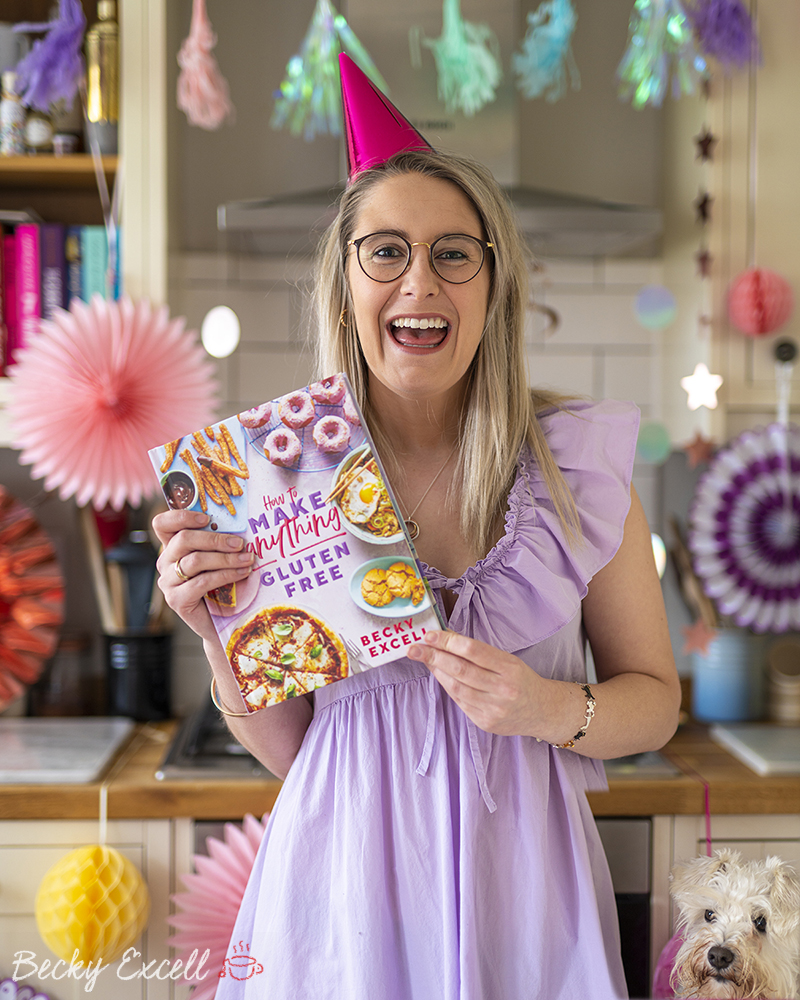 Thank you.
Thank you.
What has made this process so much easier is you – honestly! I have had literally thousands of messages on my social media channels since I first spoke about this on the 28th March 2021.
There’s been fellow BRCA gene mutation folk, those with other gene mutations, cancer survivors, current cancer patients, radiographers, GPs, nurses, surgeons, those who’ve had mastectomies and hysterectomies for a variety of reasons, friends and family of current cancer patients, friends and family of those who lost their battle with cancer, IVF parents, genetic counsellors, those with questions and those of you sending positivity, support and love.
It’s been overwhelming and incredible in the most amazing way possible. I definitely now don’t feel alone, and please – if you are going through anything at all in your life please always feel free to reach out to me, or to anyone close to you. I promise that, whatever you’re going through, it will help just by not having to walk that road alone. That’s why I am eternally grateful to you all!
This is just my journey so far and I’ll definitely keep you updated on my Instagram story (you just tap my profile picture to view it) or keep your eyes peeled and I’ll make another post like this further down the line, if you’d like.
Thanks for reading and for all the love and positivity, please feel free to leave your thoughts and stories in the comments below this post.
Becky x
Resources on BRCA2
I thought I would pop a few things I’ve found useful so far in getting my head around understanding the BRCA2 gene mutation. If I remember, I’ll add some more links as I go along and if anyone else find anything useful, please let me know.
- A Beginners Guide to BRCA1 and BRCA2 – The Royal Marsden
- BRCA Umbrella Support Network
- MacMillan Cancer Support – BRCA Info
- Angelia Jolie BRCA Article #1
- Angelina Jolie BRCA Article #2
- The Bold Type – TV series on Netflix that I’ve been recommended where one of the characters is BRCA2 positive.
